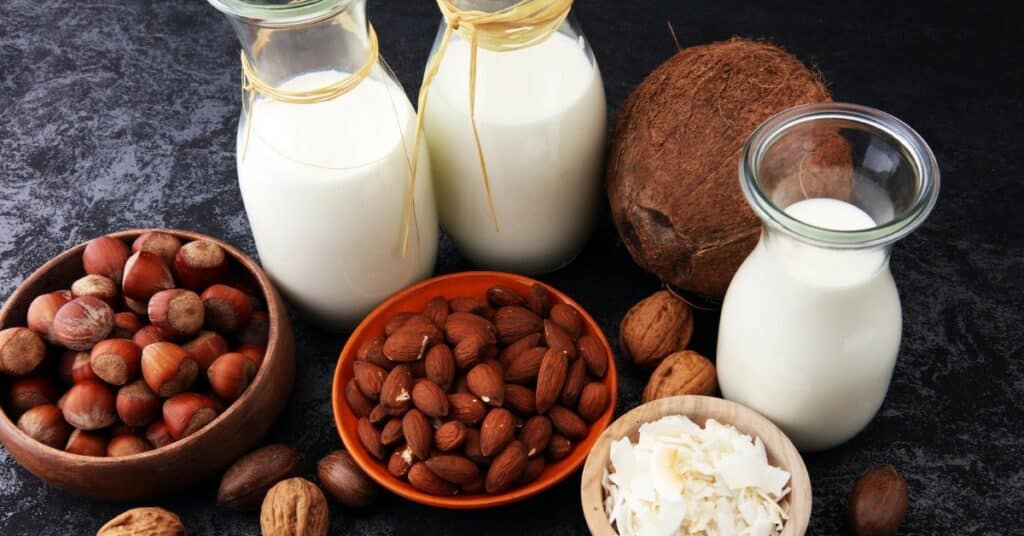Nut-based milk is a creamy, smooth beverage, made entirely from plants. While the texture and color are similar to cow’s milk, the term “milk” may be a bit misleading as no ‘milking’ is required.
Nut milks are made from blending nuts (or sometimes seeds) with water to create a smooth, frothy drink that resembles milk. Some of the most popular varieties of nut milk are made from almond, hempseed, cashew, coconut, or a combination.
These plant-milk varieties are made of two simple ingredients: nuts and water.
This makes them a great choice for people following a dairy-free, vegan, or low carb, keto diet. Each nut milk has a different nutrient profile depending on the variety of nut used.
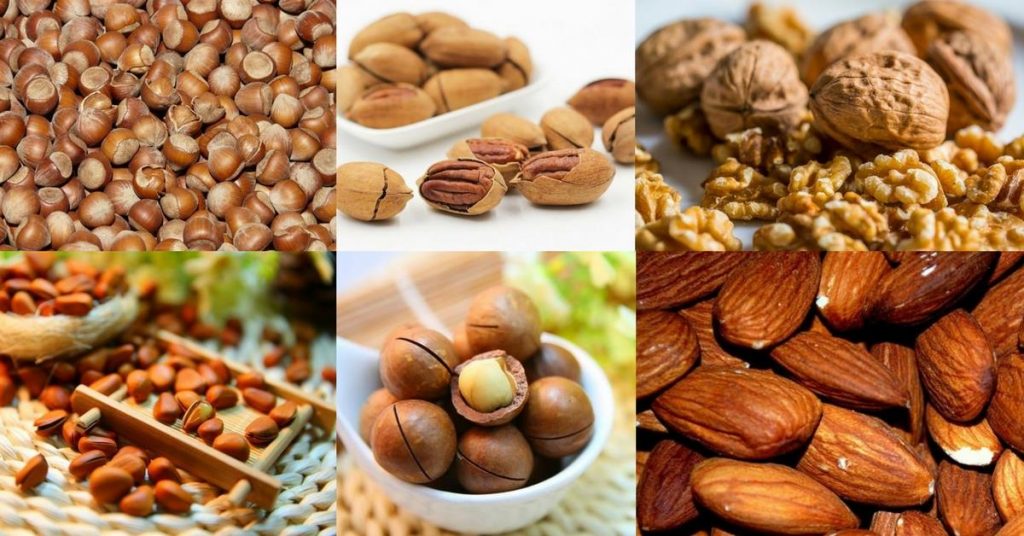
Common Types of Nut Milks and Their Nutritive Values
Nut milk can be made using any nut at all. Almonds, cashews, walnuts, pistachios, macadamias, coconut, and hazelnuts are the nuts that get the most attention in recipe books and on the internet.
There are also many varieties of seeds that have been gaining popularity for milk-making as well, namely hempseed, flaxseed, and even sunflower seeds.
Nuts and seeds are nutrition powerhouses. They are a great source of heart-healthy fats, B vitamins (including folate), vitamin E, calcium, iron, zinc, potassium, and magnesium to name a few.
They contain fiber, a small amount of protein, and even contain flavonoids, resveratrol, and other plant compounds that are beneficial to human health (1).
Almond Milk
Almond milk is by far the most popular nut milk. It gained popularity as a milk-alternative around 2011 and accounted for 60% of all plant-milk sales by 2014 (2).
This rise in consumption is likely due to its mild, nutty flavor and creamy texture after straining. The almonds lend just a hint of natural sweetness which makes it a delicious milk alternative.
Most store-bought varieties water down the beverage to make it cheaper and lower in calories, and add other flavors and sweeteners, so be sure to check the label if you don’t make your own. The ingredient list should include simply nuts and filtered water.
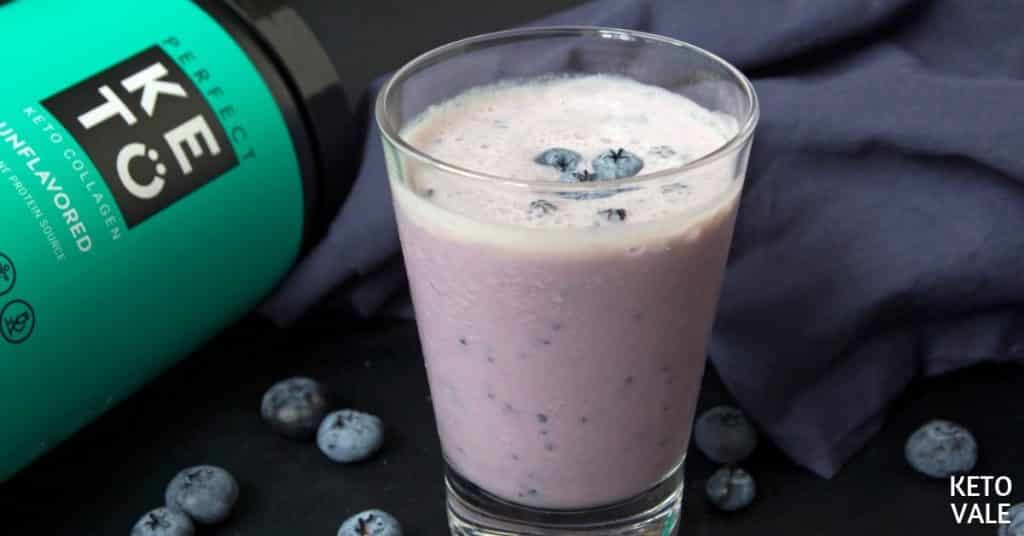
Nutritional Value of Almond Milk:
This is the nutritional value of a 1 cup (8oz) serving of homemade almond milk (simply almonds and water, not strained) (3):
- 36 Calories
- 2.34 grams of fat
- 3.2 grams of carbs (2.7 grams of net carbs)
- 0.5 grams of fiber
- 0.9 gram of protein
Cashew Milk
The second most popular nut milk is cashew milk. It is slightly higher in calories, fat, carbohydrate, and iron than almond milk.
It is very smooth and creamy and has a great texture without being strained, making it a popular choice for people who like making their own nut milk at home. Check out the nutrient profile of these two popular milk varieties below.
Nutritional Value of Cashew Milk:
This is the nutritional value of a 1 cup (8oz) serving of homemade milk (simply cashews and water, not strained) (4):
- 160 Calories
- 13 grams of fat
- 9 grams of carbs (8 grams of net carbs)
- 1 gram of fiber
- 2 grams of sugar
- 5 gram of protein
- Calcium: 20mg (2%DV)
- Iron: 1.8mg (10%DV)
When comparing plant milk to cow’s milk, it’s important to remember that there are many nutritional differences. Nut milk is completely cholesterol free, lower in carbohydrate, and rich in unsaturated fats.
However, there is less calcium, protein, and no vitamin D, so those nutrients which are commonly found in dairy milk should be made up in the diet somewhere else (5).
Coconut Milk
Coconut milk is made from the white coconut meat that comes from brown coconuts.
Green coconut fruits are the young ones and are used to make coconut water (juice) while brown coconuts are the mature ones that are used to make coconut milk and oil.
While coconut might be considered as a fruit rather than a nut, coconut milk is a perfect plant-based milk for your low carb diet.
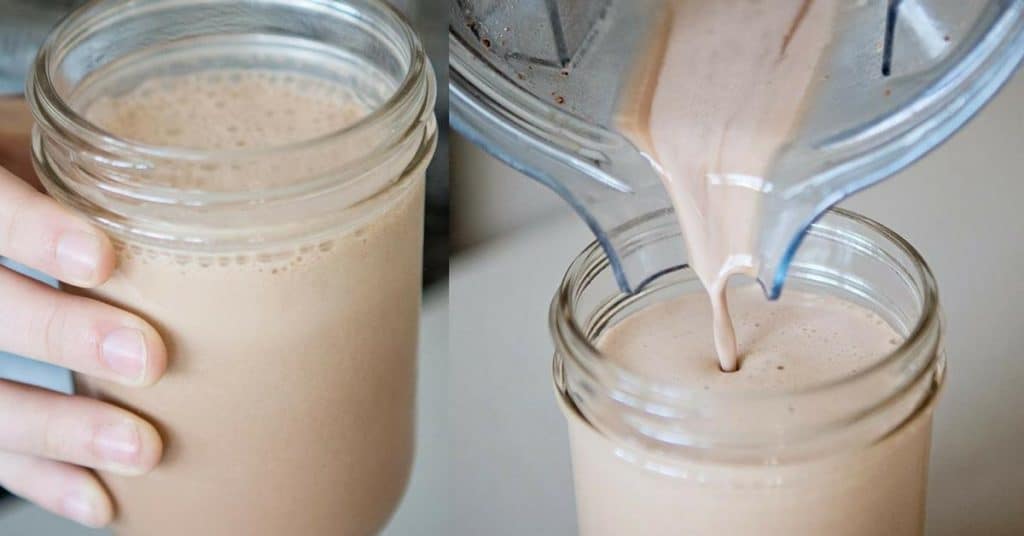
The consistency of coconut milk varies depending on the manufacturer and purpose of use. You can find coconut milk that has a thin consistency like almond milk, or a thick consistency like heavy cream which has up to 24 grams of fat per 100 grams.
Benefits of Nuts and Nut Milk
There are many health benefits associated with consuming nuts.
The research shows that eating nuts regularly can protect individuals from common diseases like heart disease and diabetes, while also helping people manage weight and even add a few years to their life.
Because nut milks are simply nuts combined with water, the healthful benefits of nuts can be attained by also drinking nut milk (6, 7).
- For Cardiovascular System
Nuts are beneficial to the heart because of the unsaturated fat, fiber, and plant sterols (substances in plants that help lower cholesterol) they contain.
Research shows that frequent nut intake is associated with improvement of blood lipids including the lowering of LDL cholesterol levels (the bad cholesterol).
Nut consumption is also associated with a decreased risk of heart disease and cardiac-related deaths (8, 9, 10).
- For Diabetes Prevention and Blood Glucose Control
Nuts are rich in healthy fats and fiber, but low in carbohydrate, making them a great food for balancing blood glucose (also known as blood sugar) and preventing insulin spikes.
Eating almonds and other nuts are associated with a lower risk of developing Type 2 Diabetes. Nuts have also been found to help individuals who have blood glucose issues to achieve better blood glucose control (11, 12).
- For Weight Management
Nut consumption is associated with maintaining a healthy weight. In a study of over 13 thousand people, those who ate nuts regularly were less likely to have abdominal fat, more likely to be in a healthy weight range, and had a lower risk for metabolic syndrome and obesity.
The fiber, healthy fat and protein found in nuts makes them very satiating and can help control appetite.
While nuts may be high in calories (around 160-200 calories per ounce) the filling benefits make them worth including in a healthy diet (13, 14).
How to Make Your Own Nut Milk
Making your own nut milk is cheap, easy, and allows you to be in complete control of what ingredients are added to your beverage.
Even more importantly, you control which ingredients (such as preservatives or extra sugar) are not added.
There are two methods that can be used, the “Soak and Blend” method, and the “Quick-Blend” method.
#1. Soak and Blend Method
This method takes some planning ahead but produces the smoothest, highest quality milk at a good price. If a smooth, drinkable texture is desired, straining is best.
If you are planning on using milk for recipes, or to add to oatmeal or other dishes, straining is not required.
- In a large bowl, add 1 cup of raw nuts and cover completely with water. Allow nuts to soak overnight or for at least 8 hours.
- After soaking, drain off water, give the nuts a quick rinse, and add them to the blender. If using almonds, you may remove the skins with your fingers, or simply blend them with skins intact.
- Add 4 cups of filtered water to the nuts and blend on the highest speed for 2 minutes.
- If desired, strain the milk through a nut bag, cheesecloth, or use a coffee filter placed in a colander.
- Refrigerate milk for up to a week. Shake before using.
#2. Quick-Blend Method
This method uses all-natural nut butter (no salt or sugar added), instead of raw nuts. It is a great way to make your own nut milk if you don’t have an expensive, high-powered blender but still want to make your own nut milk at home.
Any inexpensive blender, food processor, or even hand mixer will do. The taste of this nut milk tends to be a little richer because the nuts have usually been roasted before being made into butter.
- Using a blender or mixer, combine ½ cup of all-natural nut butter (make sure it is an extra smooth variety) with 4 cups of water.
- Mix or blend for 2 minutes or until the nut butter is suspended in the liquid. No straining is required.
- Refrigerate milk for up to a week. Shake before using.
Customizing and Using Your Nut Milk
The recipes above can be used as a starting point for many variations of milk. If desired, you can customize your milk by adding a bit of vanilla extract, a pinch of sea salt, cinnamon, nutmeg, or even a dash of maple syrup or honey.
Try blending different varieties of nuts together for even more variety of flavors and textures.
Nut milk can be used in place of regular milk to pour over cereal, add to smoothies, to mix into muffins or quick-breads, or even to enjoy plain.
If you are not able to enjoy your milk within a week of being refrigerated, simply freeze in a few ice cube trays. This is a great addition to smoothies, iced coffee, or other beverages.
Which Milk Nut is Keto-friendly?
Any nut milk made with nuts or a plain nut butter is a keto-friendly drink. Be aware that any mix-ins you might add must also be keto-friendly.
A little liquid stevia can be used to add a hint of sweetness in place of honey or sugar.
You can also blend in a bit of low-carb fruit, such as berries, to lend a little extra flavor if the milk is not sweet enough for your taste.
Conclusion
Nut milk is a great dairy-free, vegan, low-carbohydrate way to enjoy a glass of milk. The benefits of consuming nuts are well known and can help you live your healthiest life.
Making your own plant-based milk is fun, simple, and allows you to control all the ingredients. With so many different varieties and flavor additions, it’s easy to find a milk that suits your taste buds. Give nut milk, especially your own homemade variety, a try!
Enjoy this post? Share to save for later!
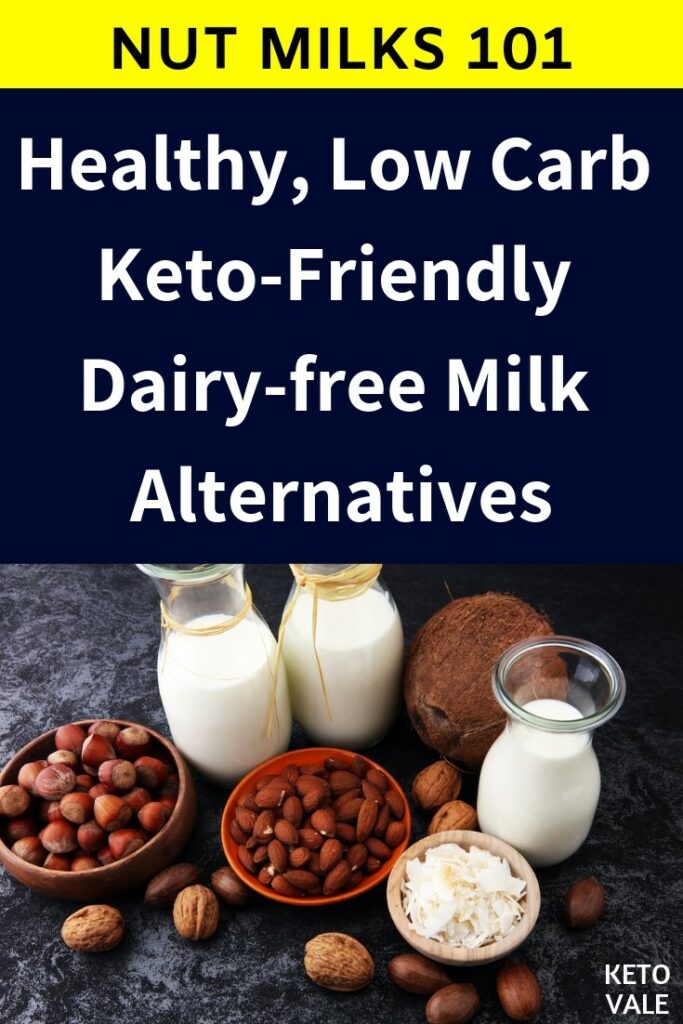
Photo credit: beats1/Depositphotos.com
